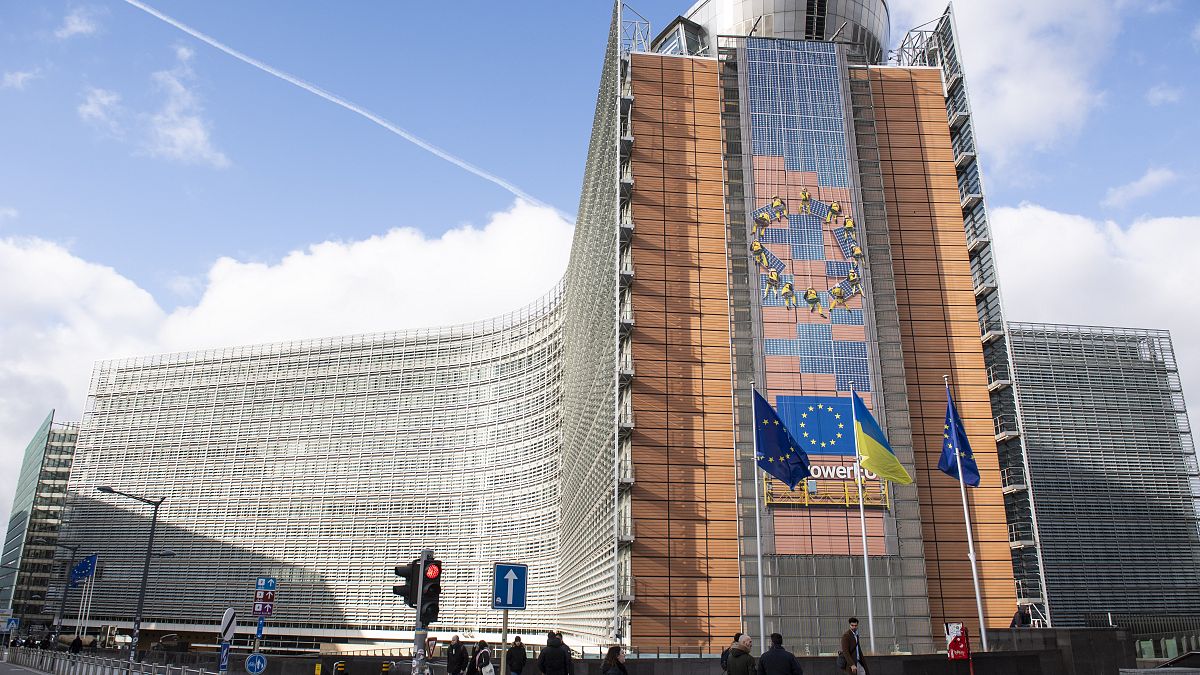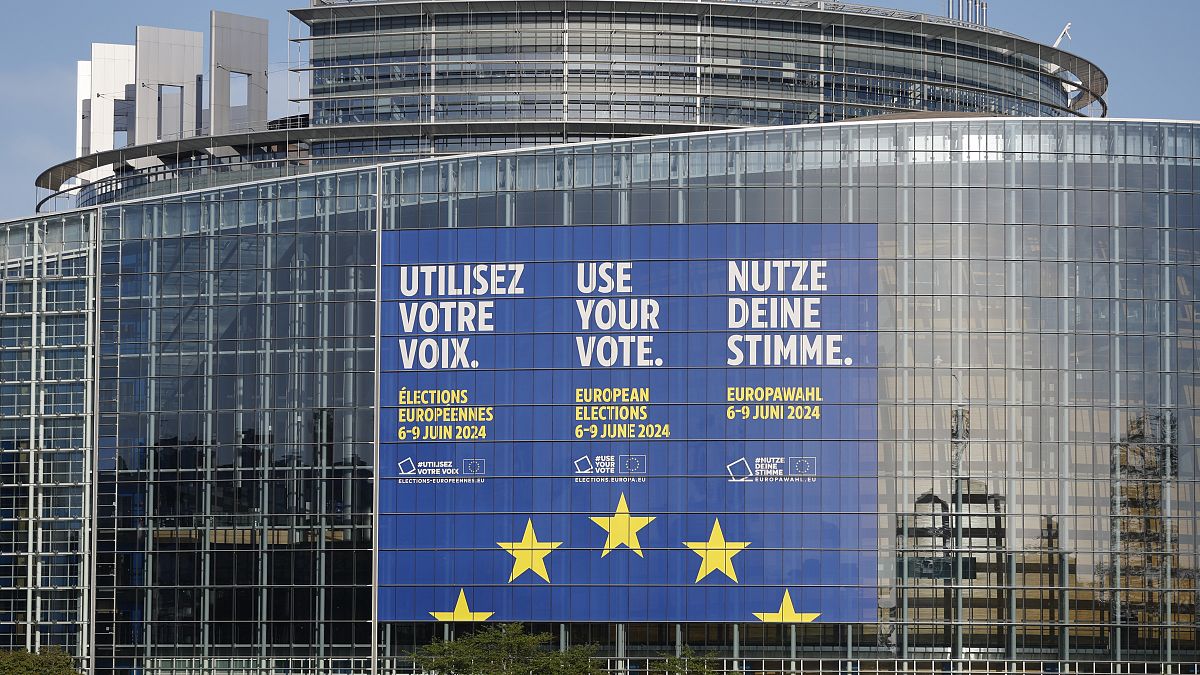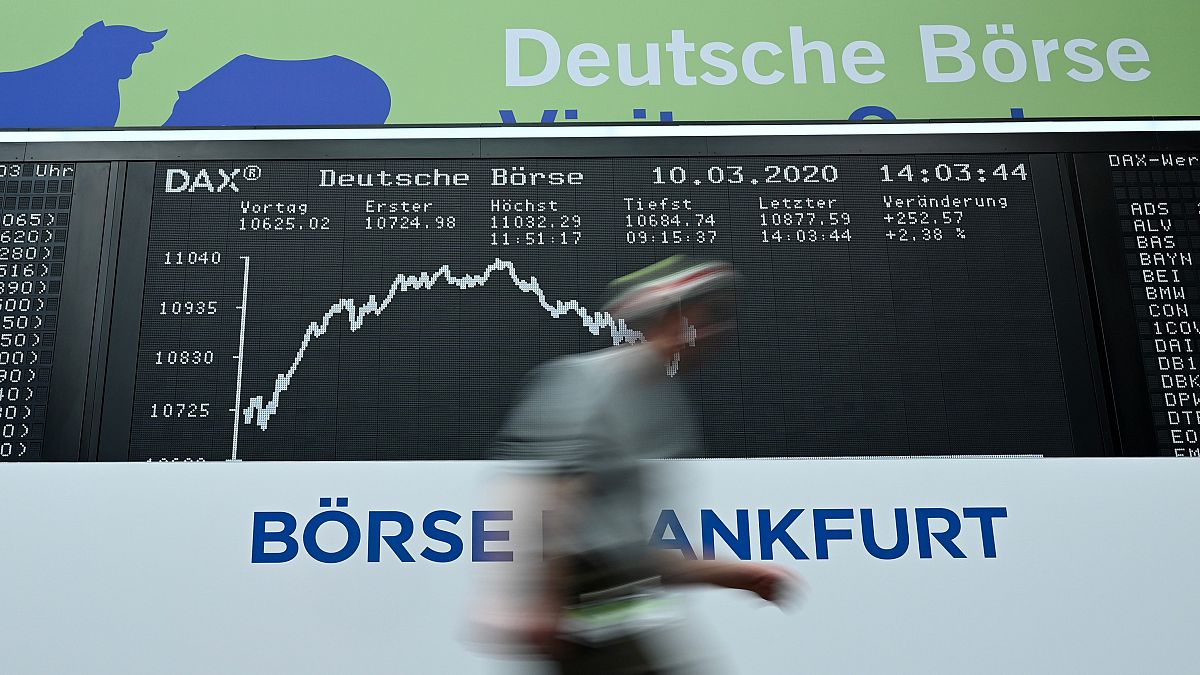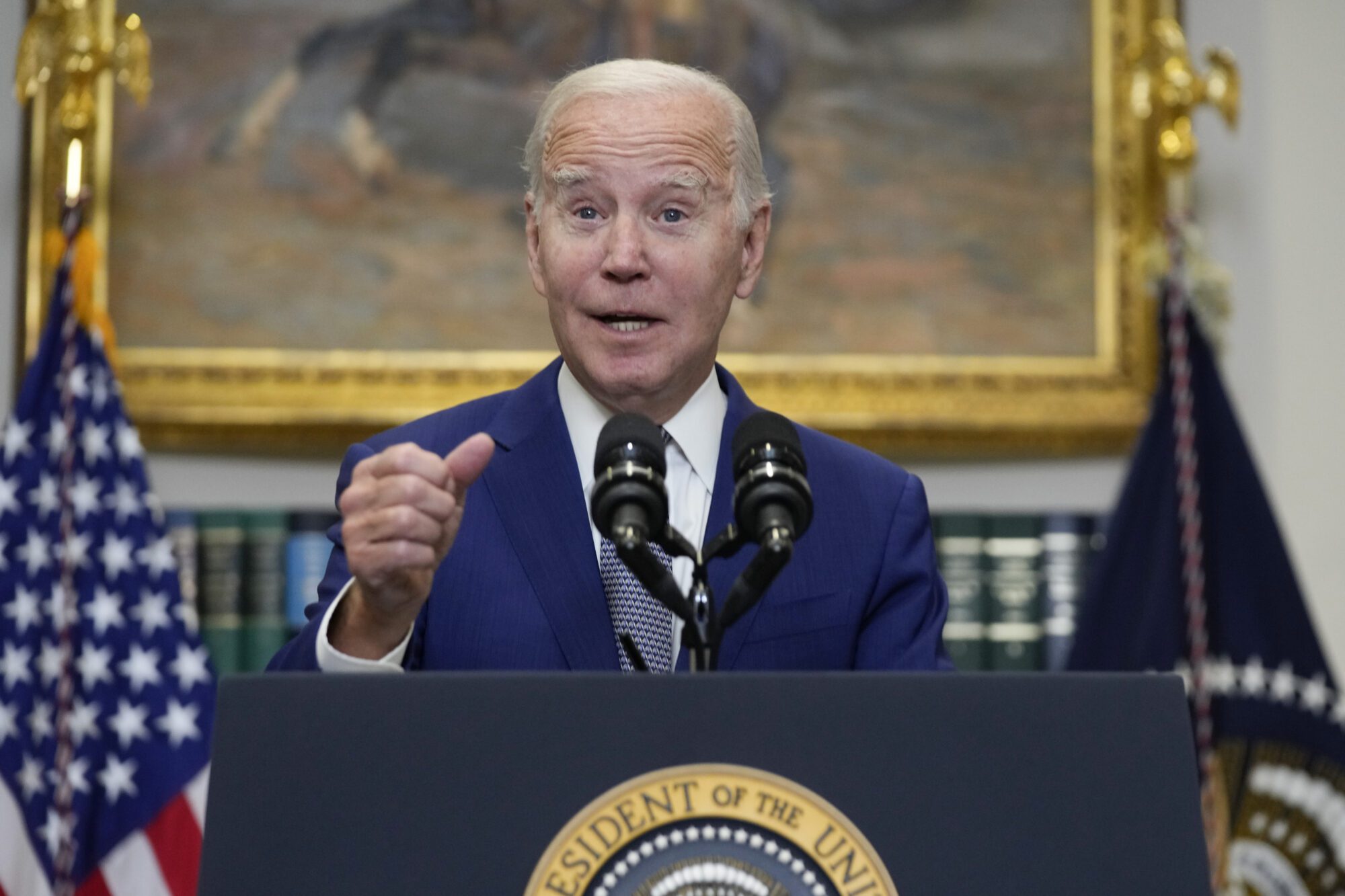World
Von der Leyen staffing turbulence plays into EU elections
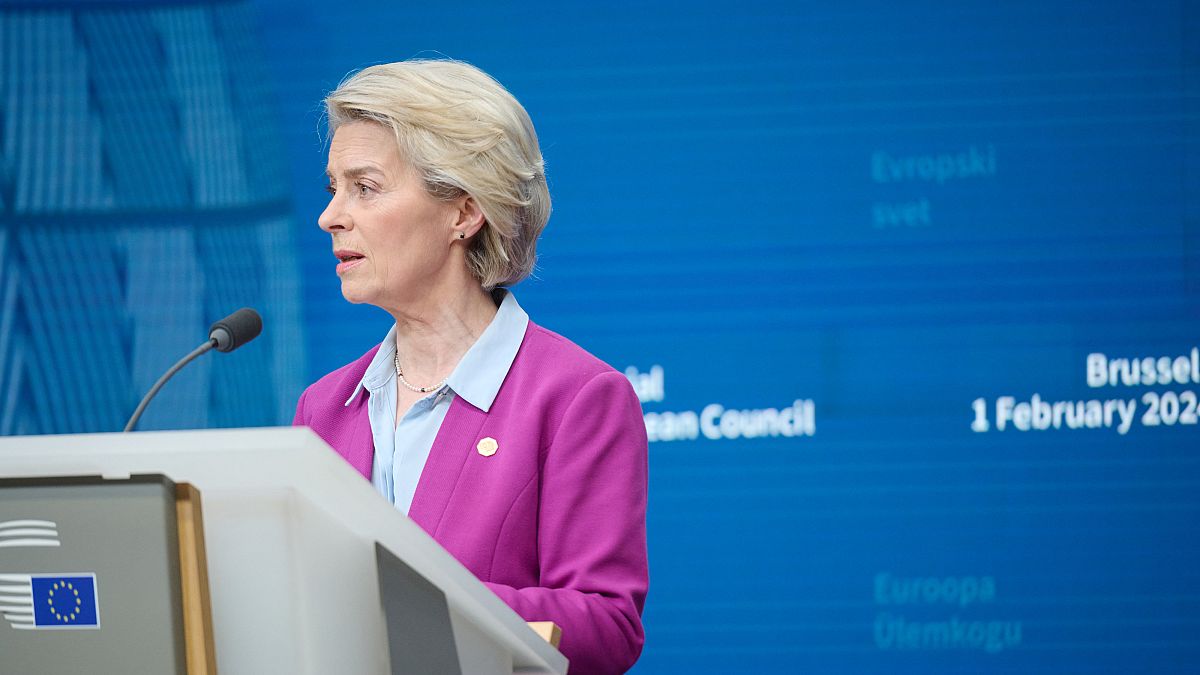
A human resource crisis at the Commission comes ahead of a sensitive changing of the guard in Brussels.
Controversial small-business envoy Markus Pieper now won’t take up duties at the European Commission – but the scandal takes place at a sensitive time in Brussels.
A decision to hand a lucrative €20,000-a-month official post to Pieper, a member of the same German political party as Commission President Ursula von der Leyen, could have complex repercussions ahead of European elections due in June.
In a statement posted on X, Pieper himself said the role had been “abused for party political reasons”, and accused EU Industry Commissioner Thierry Breton of having “boycotted” his appointment.
“Things will look different after the European elections with the foreseeable new majorities,” Pieper added – suggesting that future Commission official recruitments could be influenced by June elections projected to see a rise in support for right-wing parties.
Sources close to Breton said Pieper’s allegations were “ludicrous at best”, while Commission Chief Spokesperson Eric Mamer declined to comment.
But Mamer was candid that pre-election turbulence has played a role, after MEPs voted 382-144 in favour of rescinding the appointment.
“The context in which this whole procedure has evolved in recent weeks is not serene,” Mamer said. “Waiting for the end of elections will bring us to a point in time where the procedure can take place in a better environment.”
The Pieper hire drew controversy given allegations he scored worse on assessment tests than other candidates, and was not supported by Breton, the portfolio Commissioner for the role, in apparent contradiction to official senior appointment guidelines.
Piepergate comes at a sensitive time
It comes at a key moment in Brussels, with changeovers pending at both Commission and Parliament.
Von der Leyen is currently campaigning for a second five-year term in office as candidate of the centre-right European People’s Party.
According to most polls, the EPP will likely come first, but she’s unlikely to win an outright majority. To be voted into office, she’ll almost certainly have to form some kind of coalition with the MEPs currently her rivals.
And those lawmakers are certainly making hay from the scandal.
Von der Leyen “went too far” in appointing Pieper, and “his resignation was the only way out of the unbearable situation” she and the EPP had created, said a post on X by the Socialists and Democrats, the Parliament’s second biggest party. The EPP did not immediately respond to a request for comment.
Though Piepergate won’t change the price of butter, EU hiring crises can sometimes have an outsize impact.
Long ago in 1999, a previous Commission president, Jacques Santer, was forced to resign after a scandal in which one of his Commissioners hired a dentist to a senior advisory position.
And in a speech last week, the EU’s Ombudsman, responsible for investigating cases of maladministration, highlighted “some causes for concern” in the politicisation of official roles.
Though she didn’t refer to the Pieper case directly, Ombudsman Emily O’Reilly said “there has also been an overt political evolution in the outlook” of the Commission’s most senior decision-making body, and warned that “this drift toward overt politicisation might extend deeper into the workings of the system.”
Mamer said today that “there is no reason” for O’Reilly to probe the Pieper case further, as the Commission “respected all of the relevant procedures when it came to the selection process.”

World
Hamas delegation due in Cairo on Monday for Gaza ceasefire talks

World
Ukraine's Zelenskyy urges faster US weapon deliveries
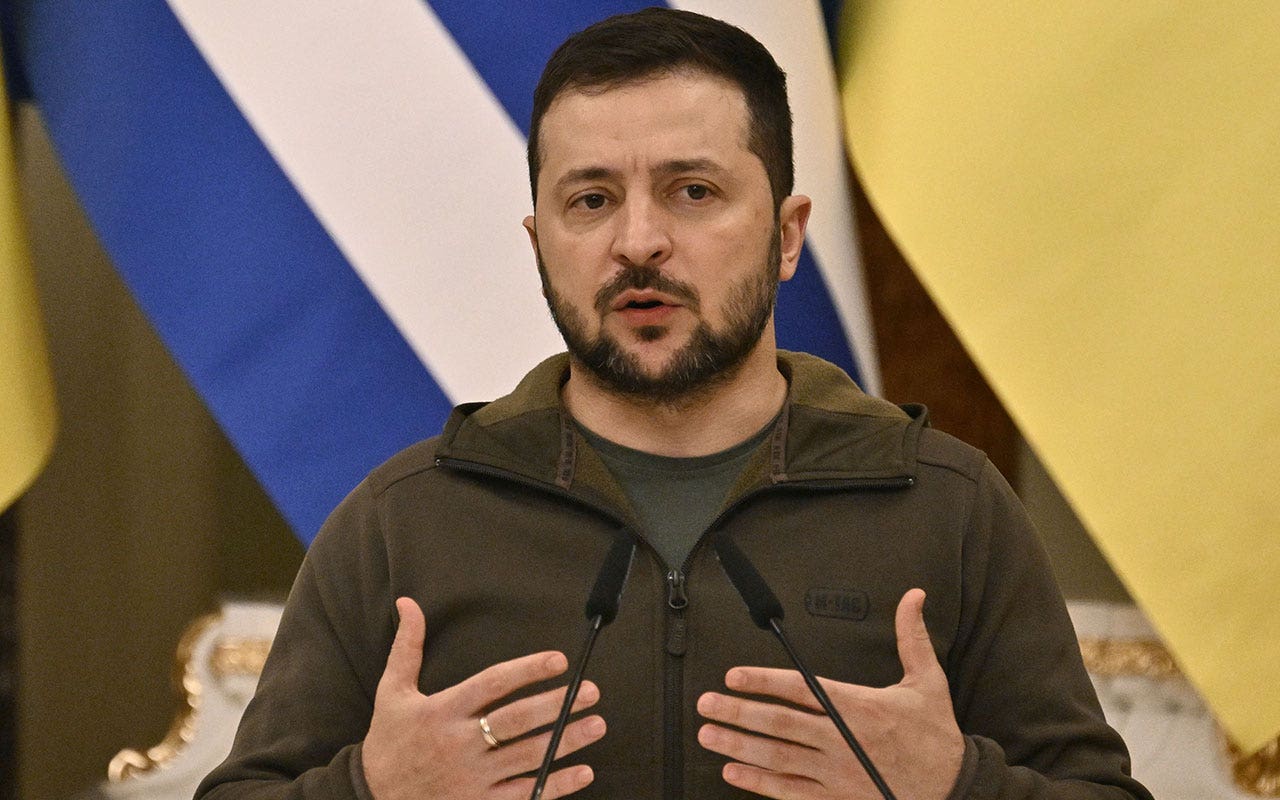
- President Volodymyr Zelenskyy said on Monday that U.S. weapons have begun to arrive in Ukraine.
- Zelenskyy voiced the urgency of accelerating the process due to advancing Russian forces attempting to exploit the situation.
- He also mentioned the lack of significant positive developments in timely support for the Ukrainian army.
President Volodymyr Zelenskyy said on Monday that vital U.S. weapons were starting to arrive in Ukraine in small amounts.
He said that the process needed to move faster.
This is the result of advancing Russian forces trying to take advantage.
REPORTER’S NOTEBOOK: UKRAINE’S ZELENSKYY OPENS UP ON US AID, ISRAEL, TRUMP
Zelenskyy spoke during a joint news conference in Kyiv alongside visiting NATO chief Jens Stoltenberg.
President Volodymyr Zelenskyy said on Monday that vital U.S. weapons were starting to arrive in Ukraine in small amounts and that the process needed to move faster as advancing Russian forces were trying to take advantage. (GENYA SAVILOV/AFP via Getty Images)
During the conference, he said the situation on the battlefield directly depended on the speed of ammunition supplies to Ukraine.
“Timely support for our army. Today I don’t see anything positive on this point yet. There are supplies, they have slightly begun, this process needs to be sped up,” he said.
World
Nine on trial in Germany over alleged far-right coup plot

Nine people charged with terrorism in connection with an alleged far-right plot to topple the German government went on trial on Monday in one of three linked cases.
The trial – which opened on Monday in Stuttgart – is the first to open in relation to the purported conspiracy, which came to light in late 2022. It is focused on those defendants of the Reich Citizens group who allegedly were part of its so-called military arm, German news agency dpa reported.
Federal prosecutors in December filed terrorism charges against a total of 27 people, one of whom has since died.
Nine other suspects, among them a self-styled prince and a former far-right lawmaker, will go on trial on 21 May at a Frankfurt state court in the most prominent of the three cases. The other eight will go on trial in Munich on 18 June.
On trial in the Frankfurt case includes Heinrich XIII Prince Reuss, whom the group allegedly planned to install as Germany’s provisional new leader; Birgit Malsack-Winkemann, a judge and former lawmaker with the far-right Alternative for Germany party; and a retired paratrooper.
The proceedings of the three cases are expected to last well into 2025.
German Interior Minister Nancy Faeser said on public broadcaster ZDF that the trial “shows the strength of our rule of law that the largest terrorist network of Reich Citizens to date… has to answer for its militant plans to overthrow the government.”
Prosecutors have said that the accused believed in a “conglomerate of conspiracy myths,” including Reich Citizens and QAnon ideology, and were convinced that Germany is ruled by a so-called deep state.
Adherents of the Reich Citizens movement, or Reichsbuergerbewegung in German, reject Germany’s postwar constitution and have called for bringing down the government, while QAnon is a global conspiracy theory with roots in the US.
According to prosecutors, the group planned to storm into the parliament building in Berlin and arrest lawmakers. It allegedly intended to negotiate a post-coup order primarily with Russia, as one of the allied victors of World War II.
The nine defendants at the Stuttgart trial are accused of membership in a terrorist organisation and “preparation of a high treasonous enterprise.” One of the defendants is also on trial for attempted murder, dpa reported.
Most of the nine suspects in the Frankfurt trial are also charged with membership in a terrorist organisation and “preparation of high treasonous undertaking.” The other eight alleged members of the group have been charged in separate indictments at the court in Munich.
-

 Kentucky1 week ago
Kentucky1 week agoKentucky first lady visits Fort Knox schools in honor of Month of the Military Child
-

 World1 week ago
World1 week agoShipping firms plead for UN help amid escalating Middle East conflict
-

 News1 week ago
News1 week agoIs this fictitious civil war closer to reality than we think? : Consider This from NPR
-

 Politics1 week ago
Politics1 week agoICE chief says this foreign adversary isn’t taking back its illegal immigrants
-

 Politics1 week ago
Politics1 week ago'Nothing more backwards' than US funding Ukraine border security but not our own, conservatives say
-

 News1 week ago
News1 week agoThe San Francisco Zoo will receive a pair of pandas from China
-

 World1 week ago
World1 week agoTwo Mexican mayoral contenders found dead on same day
-

 Politics1 week ago
Politics1 week agoRepublican aims to break decades long Senate election losing streak in this blue state

